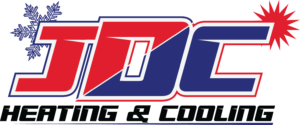When cold snaps creep in, the question of how to keep your home warm becomes more pressing. Energy prices are rising, making it hard to decide which home heating solution is cost-effective.
Explore the primary culprits of common heating issues and find efficient options and the best HVAC solutions to heat your home.
Leading Causes of Home Heating Issues
The age and condition of your home heating, ventilation, and air conditioning system can affect the temperature inside your home. The condition of insulation and weather stripping are also contributing factors. Poor insulation can lead to cold spots in the home, where air leaks cause temperatures to drop even further.
Drafts from windows and doors pose an additional problem. These airflow issues make it difficult for your home’s heating system to maintain a consistent temperature. Inadequate ventilation can also reduce your HVAC system’s efficiency by preventing proper airflow.
Stay warm while reducing heating bills. Keep your home temperature comfortable. Read on to learn more about common home heating issues and how to solve them.
Old Furnace
If you have an older furnace, it may be best to replace the unit. Upgrading to a new heating system can help reduce energy costs and keep your home comfortable when it’s cold outside. A new unit can also increase the home value, making it a better investment in the long run.
Manufacturers commonly build new HVAC systems with corrosion-resistant metals and durable insulation. This means they’ll be able to withstand the elements better than older models. The result is a longer life span for the HVAC unit to keep your home warm during cold weather.
Faulty Equipment
Faulty equipment can cause a home heating system to break down. Worn or broken parts can cause drastic temperature fluctuations and drive up energy costs. An HVAC specialist can inspect your current heating system and repair or replace faulty equipment.
Common causes of furnace problems include:
- Wiring Issues
- Damaged Ductwork
- Dirty Coils or Air Filters
- Clogged Blower Motor
- Malfunctioning Thermostat
Routine maintenance can help extend the life of a home heating system. An HVAC specialist will check the condition of the home heating system and how well the unit components are working.
A routine home heating inspection will minimize the risk of mechanical failure or costly repairs. Scheduled tune-ups with air filter changes and refrigerant level checks can also help your HVAC system run better.
Poor Insulation
A common issue with home heating is poor insulation. Heat can escape the home without proper insulation. When heat escapes a home, you can have a cold and uncomfortable living environment.
Hire a qualified technician to visually inspect the windows, walls, doors, and ceilings. They can help identify air leaks caused by cracks or holes that let heat escape. Consider replacing old insulation to improve home heat.
Ventilation Problems
Common signs of a home heat issue include low air flow from vents. Ventilation problems can become a big issue when trying to heat a home. The air inside a home can become unhealthy without proper airflow.
Take action steps to reduce air pollutants and enhance indoor air quality.
- Install exhaust fans in bathrooms and kitchens to promote air circulation.
- Open windows and doors to welcome fresh air into your home.
By implementing these measures, you can improve the quality of the air you breathe and create a healthier indoor environment.
Signs of Home Heating Problems
High energy bills, excessive humidity, air quality concerns, and unpleasant odors are some common problems homeowners face. These signs may indicate you have a home heating issue.
Rising Energy Bills
A worn or outdated furnace or air conditioner can cause high energy bills. Investing in a system with high-efficiency standards can help you save money on heating bills in the long run. It’s also important to have ducts and air filters regularly checked. Dirty air filters and damaged ductwork can affect how well an HVAC system operates.
High Humidity
Humidity can cause home heating system problems. As winter temperatures drop, air moisture levels rise. Air moisture can cause mold to grow and condensation to buildup on the inside of windows and on walls.
An HVAC professional can install a dehumidifier to remove excess moisture from the air.
Air Quality Issues
Poor air quality is another common issue many homeowners experience with a home heating system. The Environmental Protection Agency points to many sources of indoor air pollution within the home.
Dust, pollen, pet dander, mold spores, and other airborne particles can accumulate in the air ducts and circulation system. Maintaining a relative humidity level of moisture in the air can help control these airborne irritants.
Poor indoor air quality can cause breathing issues. Replace the filters of your HVAC system regularly. Also consider investing in a high-efficiency particulate air (HEPA) filter, to help reduce allergens circulating throughout the home.
Musty Scent
HVAC systems may sometimes emit a musty scent. Dust, pet dander, smoke, and other airborne particles can cause bad odors.
Water can build up in the drip pan when a drain line is blocked or clogged by airborne particles. Mold growth in the drip pan will have a musty scent.
An HVAC technician can clear clogged drain lines and clean dirty evaporator coils to help eliminate mold growth and musty smells.
Tips for Choosing and Installing an HVAC system
Consider efficiency ratings and operating costs when choosing a home heating system for installation. Consult with an HVAC specialist to find and compare traditional heating systems with ENERGY STAR certified products and furnace models.
Choosing and installing an HVAC system can be easy with the help of a trusted specialist. Determine a budget and research your options to find the right HVAC system to install in your home.
- Choose the Right Size: The type of home heating system you choose can affect warmth. An incorrect HVAC unit size can lead to home heating and cooling performance issues.
- Take Advantage of Rebates: Many utility companies offer rebates on energy-efficient heating systems. Look into this before purchasing your heating unit.
- Hire a Professional for Installation: Proper installation is the key to an efficient and reliable system. Hire a qualified HVAC professional.
- Upgrade your thermostat: A programmable smart thermostat can help you control your home’s temperature and reduce energy costs.
Schedule routine home heating maintenance to extend the life of your HVAC system and keep it running smoothly. An HVAC technician can identify potential issues and repair them before they become major problems.
Energy Efficient Upgrades
Air leaks contribute to poor indoor air quality and moisture issues with heated air. Areas of the home leaking heat may benefit from energy-efficient upgrades.
A home energy audit and blower door test can help detect air leaks. Air sealing your home with caulking and weatherstripping can help reduce drafts and heat loss. A home weatherization expert can test air tightness and offer insulation services to reduce heat loss.
Energy-efficient insulation can improve how well your home retains heat when the weather is cold outside. A well-insulated home can help reduce energy costs and create a more comfortable living space.
Heat Your Home
Heating your home can be easy and stress-free with the help of an experienced HVAC specialist. With guidance, you can choose the perfect home heating solution to suit your needs. Routine maintenance appointments can also help extend the life of your HVAC system.
A reliable HVAC system can raise your comfort level and save you money on energy bills. Improve heating and home comfort. Invest in a reliable HVAC system with JDC Heating & Cooling.


